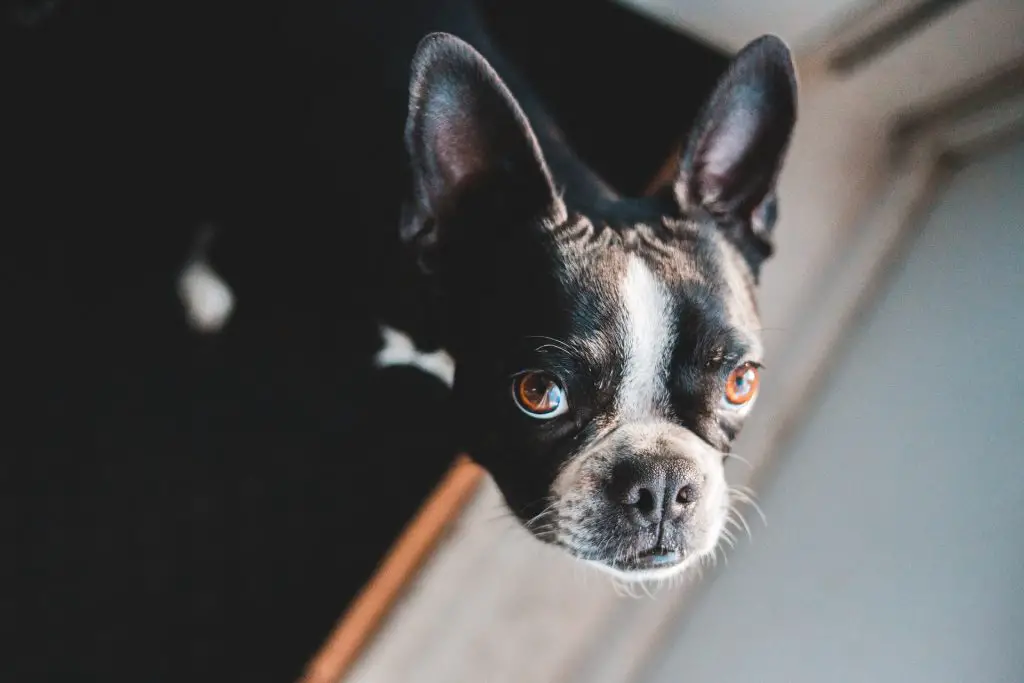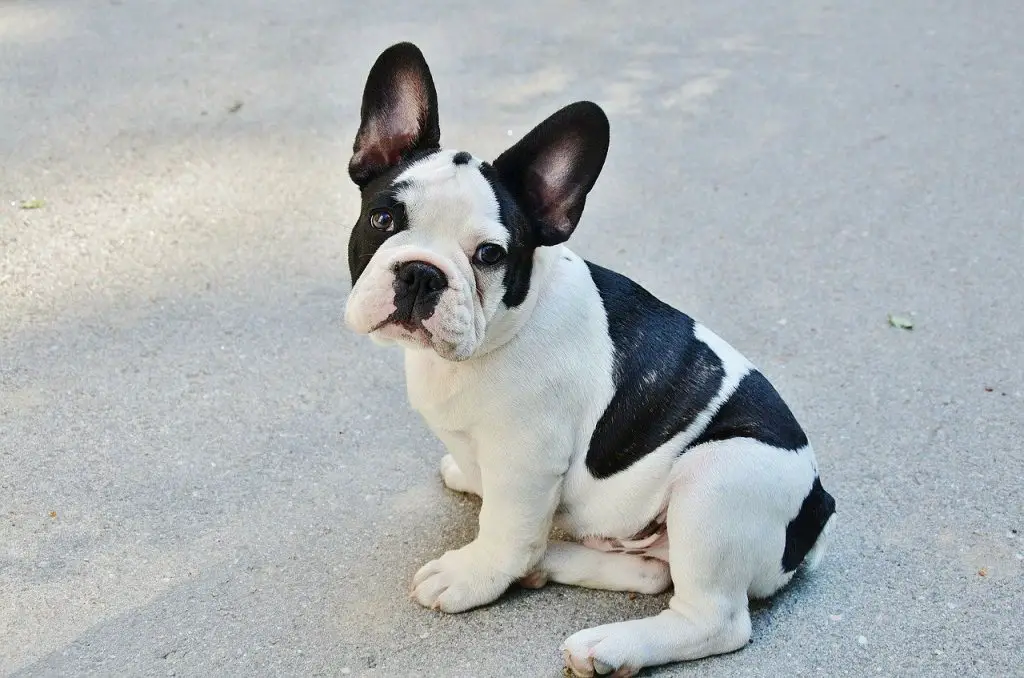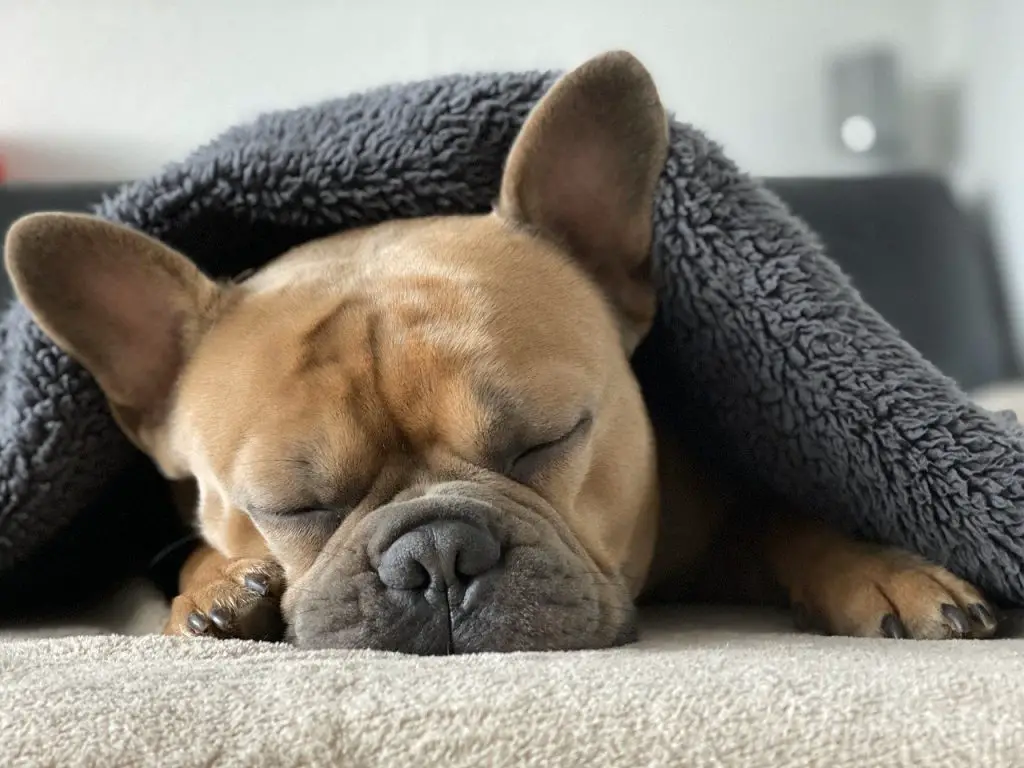Knowing when to neuter a French Bulldog is an important task for every dog owner. This way, you can prevent your dog from mating with a female canine and producing a little. Aside from that, neutering has a lot of health benefits that could even extend a dog’s life.
For this post, I will discuss the perfect time to neuter a Frenchie, its benefits, and how you can help your dog recover from the procedure.
When to neuter a French Bulldog

For French Bulldogs, the best time to neuter is between the ages of 4 to 9 months. At this point, your doggo has reached a certain body weight. Also, this is the adolescent phase in which the canine isn’t sexually mature yet. While you can still neuter an older dog, fixing the dog during the adolescent period has its benefits.
However, the right age also depends on the overall health of the French Bulldog. The dog must complete its skeletal and muscular development before the procedure. Neutering too early will alter your dog’s hormones and stymie its growth. In the long run, this will cause irreversible health problems for your canine.
Timing is very important when neutering a canine. The vet will suggest a specific timeframe or week when your Frenchie is best neutered. This is to avoid any negative effects and to ensure that your doggo will see a full recovery.
Benefits of neutering French Bulldog
Neutering a canine has a lot of benefits aside from controlling their population. The following are some of the reasons why you should consider getting your male Frenchie fixed?
- It increases your dog’s lifespan. Neutering will dramatically reduce your Frenchie’s risk of developing health problems like testicular cancer. In turn, this will potentially lengthen your pooch’s life.
- Houdini no more. If your Frenchie is a notorious escape artist, neutering it will help a lot. Dogs usually escape to seek a female in heat. With their testicles removed, Frenchies no longer have the sexual drive that will force them to escape.
- Better behavior. Intact dogs are more prone to behavioral problems and aggression related to their sex drive. Male dogs often mark their territories whenever they feel threatened. While neutering won’t completely stop spraying, it will reduce its occurrence by more than half.
- Cost-effective. While neutering your dog will cost a fee, it saves you more money in the long run. You wouldn’t want to pay for “child support” in case your male dog impregnates someone else’s canine.
- Fewer dog fights. Neutered Frenchies have a more laidback temperament so they are unlikely to stir dogfights in the neighborhood. That’s equivalent to lower vet fees in the long run.
- You’re doing shelters a big favor. Every year, thousands of puppies end up in rescue centers and shelters. One of the main culprits here is the owner’s failure to neuter or spay their pets. Although your dog is male, you should be responsible enough to get it fixed.
Are there any downsides to neutering?

Just like any treatment, there’s a small risk associated with neutering. Some dogs, not just French Bulldogs, may have an increased risk of developing hypothyroidism after the procedure. Still, this doesn’t happen all the time and is only likely to occur on canines with pre-existing conditions.
Another thing that dog owners worry about is weight gain. Many dogs experience a surge in appetite after neutering so they can easily become obese. The solution here is very easy, though. Proper feeding and portion control will prevent your French Bulldog from ballooning.
Aside from that, some dog owners worry about the risk of prostate cancer on dogs, though this is yet to be supported by studies and vet findings.
How neutering works
Neutering a dog involves the removal of its testicles. This is a surgical procedure that should only be performed by a veterinarian. Take note that this procedure uses general anesthesia so only a professional should undertake it.
Fortunately, most French Bulldogs do well under anesthesia. However, the crucial part here is their breathing. Frenchies have short airways, which is why veterinarians will also put your dog in an oxygen supply.
If your Frenchie has a history of anesthesia complications, it’s important to mention it to the vet. Some cases may require a milder dose to minimize potential side effects during the operation.
Once your dog is asleep, the vet will cut the frontal part of the dog’s scrotum. This to cut off the testicular stalks so the veterinarian can perform full removal of the testicles.
After that, the wound will be stitched and your Frenchie will have to wear the cone of shame. Usually, the stitches will heal within two weeks. After that, you need to bring your dog back to the vet for the removal of the sutures.
There are Frenchies prescribed with antibiotics to prevent infections. Each French Bulldog is unique so you should always heed the advice of a veterinarian.
Compared to spaying, neutering is much simpler and less invasive. Still, it requires proper post-surgery care to prevent infections.
In this video, ASPCA shows us how dogs are prepared for neutering/spaying in the vet’s clinic:
Preparing your Frenchie for neutering
Just like with any treatment, your French Bulldog must be in prime condition. This will reduce the risk of anesthesia complications and other problems when the pooch is on the operating table.
Before the operation, the veterinarian will run tests to ensure that the doggo doesn’t have any underlying conditions. A blood test is the baseline test to identify any common health problems.
Remember that vets will conduct more tests on older canines to ensure that they are still safe to neuter.
Once your Frenchie gets the green light for the operation, the vet may ask to put the dog in fasting mode. This means not eating anything for eight hours. Most of the time, drinking water is fine, but it depends on the advice of the veterinarian.
Helping your Frenchie recover from the procedure

After the neutering procedure, your pooch will still be under the influence of anesthesia. Don’t be surprised if your dog is a little trippy in the first few hours. Most of the time, you can take the Frenchie home on the same day, but sometimes, the vet might recommend an overnight stay for the pooch.
Younger Frenchies tend to recover faster from the surgery while older canines will take more time. Still, the difference would only be a matter of two to three days.
Meanwhile, smaller breeds recover faster than larger ones. This is due to the smaller incisions since the pooch’s testicles are proportionally smaller.
Overall, you should give your French Bulldog up to six weeks for a full recovery. During this time, you need to put the doggo on an Elizabethan collar, a.k.a. cone of shame. This is to prevent the doggo from licking and chewing the stitches. Take note that a dog’s saliva is mired with germs that can easily start an infection on the wound.
In terms of aftercare, the following are some of the helpful tips you can do:
🐶Be patient
After the surgery, your French Bulldog will be in discomfort and pain. You will notice behavioral changes, which is normal for someone who has been hospitalized. Even humans go through this phase.
Never punish your dog for behaving roughly or showing signs of aggression. Just imagine your balls getting removed. You would be annoyed, too, right?
Moreover, your Frenchie may have a poor appetite in the first days after the procedure. This is normal, but the doggo should still eat and drink a little. If your pet is refusing to take any food or water totally, that’s the time you’ll bring it to the vet.
However, some dogs tend to increase their appetite after neutering. You should watch out for this as French Bulldogs are prone to obesity.
🐶Keep the wound clean
The most important part of caring for a newly neutered Frenchie is cleaning its wound. You should put your dog on a cone so it won’t lick the area. Also, you should clean the wound using the solution the vet provided. Make sure that ask about this before you bring the doggo home so you won’t have to second-guess.
Keep the wounds dry at all times so infections and bacteria won’t grow on them. If you notice any weird smell, discharge, or discoloration on the stitched area, you should call the vet right away. This might indicate an infection that requires immediate veterinary care.
🐶Reduce your Frenchie’s physical activities
French Bulldogs are playful, but you have to tone down their physical activities until the wounds have fully healed. Nevertheless, a stroll to the bathroom wouldn’t hurt as long as your pooch isn’t jumping and zooming in too fast.
If you need to bring the doggo upstairs or somewhere far, just carry it around. Don’t let your newly neutered Frenchie exert too much physically. It will cause the wound to bleed or the sutures to pop.
🐶Consider sedatives
For French Bulldogs that won’t settle and rest, the vet can prescribe a mild sedative. This is to allow the pooch to sleep and not strain the wounded area. Also, sedatives will ease the pain and discomfort of the pooch, though the vet will surely prescribe a painkiller for this.
🐶Bring the pooch back to the vet
After 10 to 14 days, the veterinarian will require you to bring the Frenchie back to the clinic. This is to remove the stitches and sanitize the wound. Sometimes, the vet can instruct you to do this at home, though it’s safer to let the dog doctor do it.
Even after the stitches have been removed, you should keep cleaning the wound area. Also, slowly increase your dog’s activity, but don’t let it run free just yet.
Frequently Asked Questions
Q: Do French Bulldogs need to be neutered?
A: Yes, French Bulldogs should be neutered if the owner doesn’t have the means or intention to care for a new litter. While male dogs aren’t the ones to get pregnant, owners need to be responsible enough to prevent the overpopulation of puppies that may land in shelters.
Q: What age do French Bulldogs’ balls drop?
A: The scrotum of a French Bulldog will start to show for as early as seven weeks old. However, some doggos may take up to six months to fully grow their testicles. If your Frenchie is getting older and its balls aren’t dropping yet, I suggest that you bring it to the vet. Your pooch might be suffering from a certain health condition.
Q: Why does my neutered French Bulldog still hump?
A: Even if neutered, dogs can still hump. Take note that humping isn’t always sexual so expect it to occur once in a while. Some Frenchies will hump their owners because it gets their attention or that it’s an inadvertently rewarded behavior. Training your dog out of it will help curb the behavior.
Q: When should I not neuter my dog?
A: It’s quite rare for dogs to be at risk after neutering. However, if your pooch experiences complications under anesthesia, the vet may recommend not to neuter the pooch. Also, canines with underlying conditions that could worsen after neutering may not be good candidates for the procedure.
Q: How much does it cost to neuter a puppy?
A: The cost of neutering varies widely, depending on the clinic and your location. Usually, it will range from $200 to $500. Meanwhile, organizations like ASPCA often host spay/neuter clinics where you can have your pooch fixed for a very low cost as compared to commercial clinics. The good thing is that many organizations offer free neutering and spaying on local shelters.
Final words
Aside from knowing when to neuter French Bulldog, you should also know more about aftercare needs. The vet is the best person to assist you here based on the condition of your dog after the operation. Patience, monitoring, and keeping the wound clean will ensure that your dog will recover fast.
Have you recently neutered your French Bulldog? How did it go? Share it with us!

